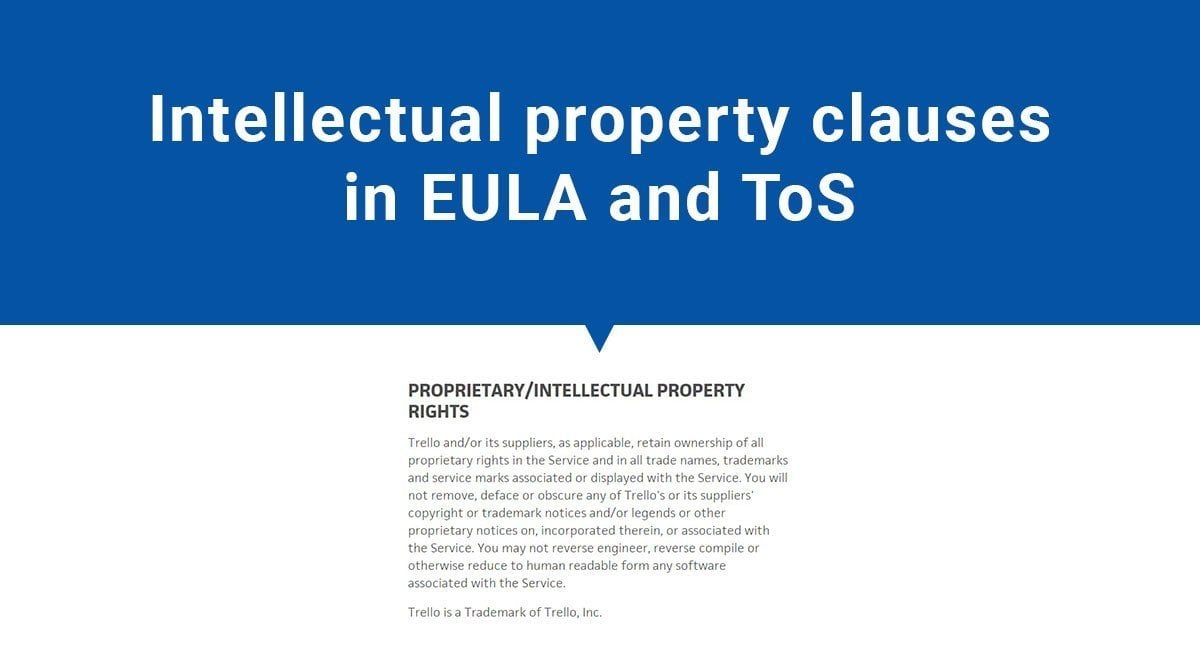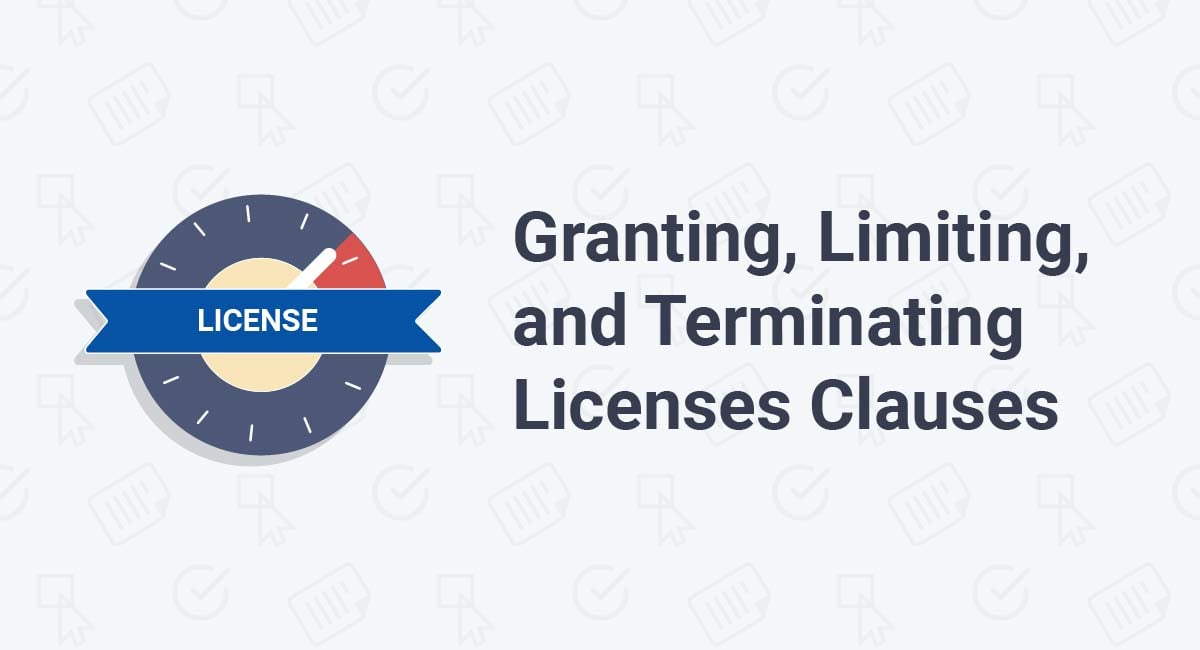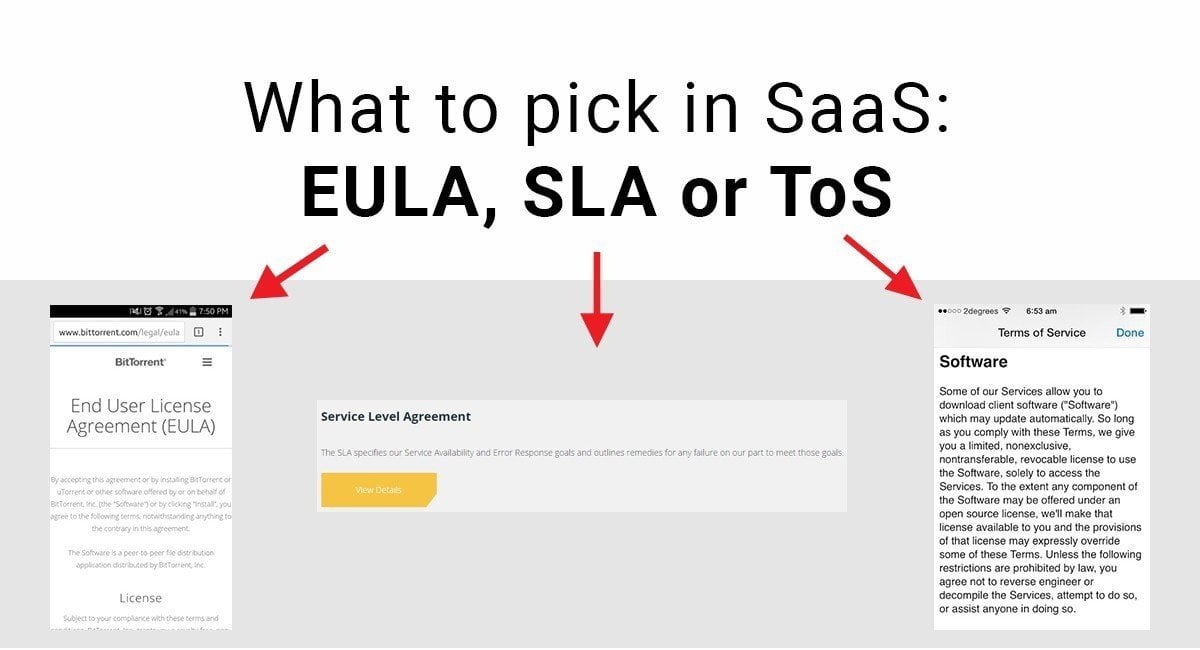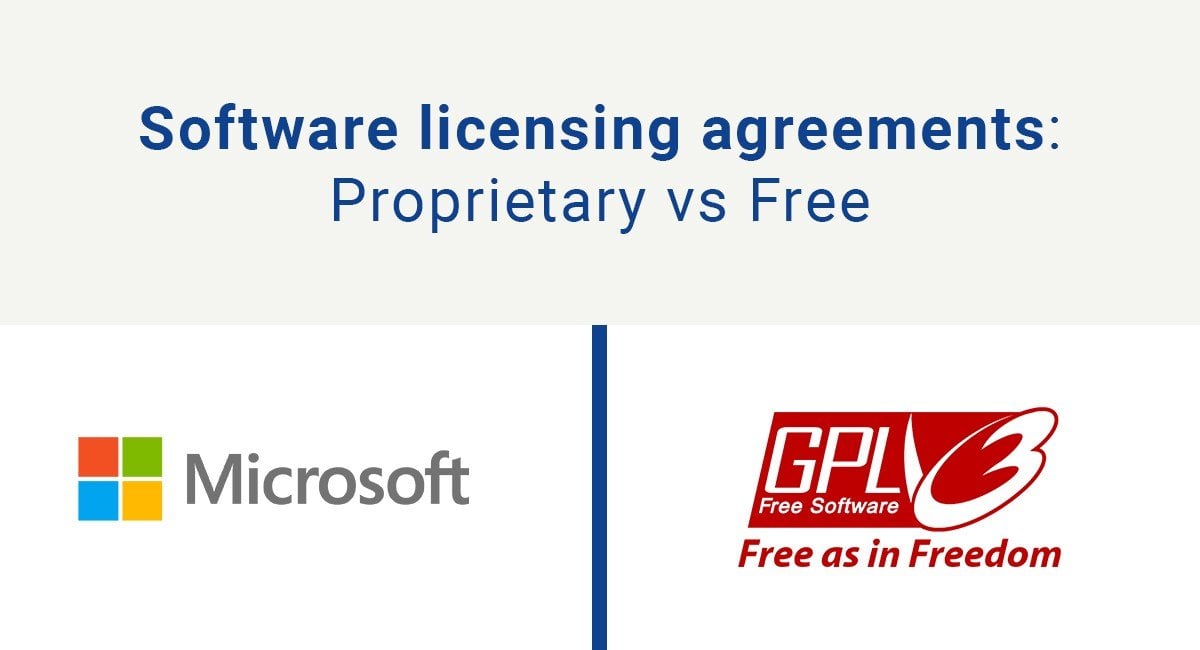Intellectual property clauses cover how the software or property of the owner is permitted to be used by the customer.
In cases of SaaS apps, it's a part of a service. In outright software purchases, the intellectual property clause may be more comprehensive, such as permitting the user to make a copy of the software for their own device.
Due to the differences in the way that different companies handle the sale of their products (such as SaaS vs non-SaaS), different legal agreements are used.
Intellectual property clauses in the End-User License Agreement (EULA) and Terms of Service (ToS) (Terms of Use or Terms & Conditions) are often quite different, especially when viewed within the context of the larger agreement.
First, we'll take a look at what intellectual property (IP) is, and then what types of situations EULA and ToS are used for.
Finally, we'll examine how their IP clauses differ and analyze some examples from well-known companies' EULAs and ToS.
What's intellectual property?
Intellectual property is a type of legal interest in a creative product, such as a book, movie, invention, logo, or artwork. The creator of a unique, creative product can register and protect their intellectual property interest in that product so that others can't claim ownership or profits from it.
In the case of software or services, the creator may hold intellectual property rights in some aspect of the product, such as the functioning of the software itself, the source code, and their company logo.
But what's the difference between an EULA and a ToS?
Our EULA Generator makes it easy to create an EULA. Just follow these steps:
-
At Step 1, select the Desktop app option and click "Next step":
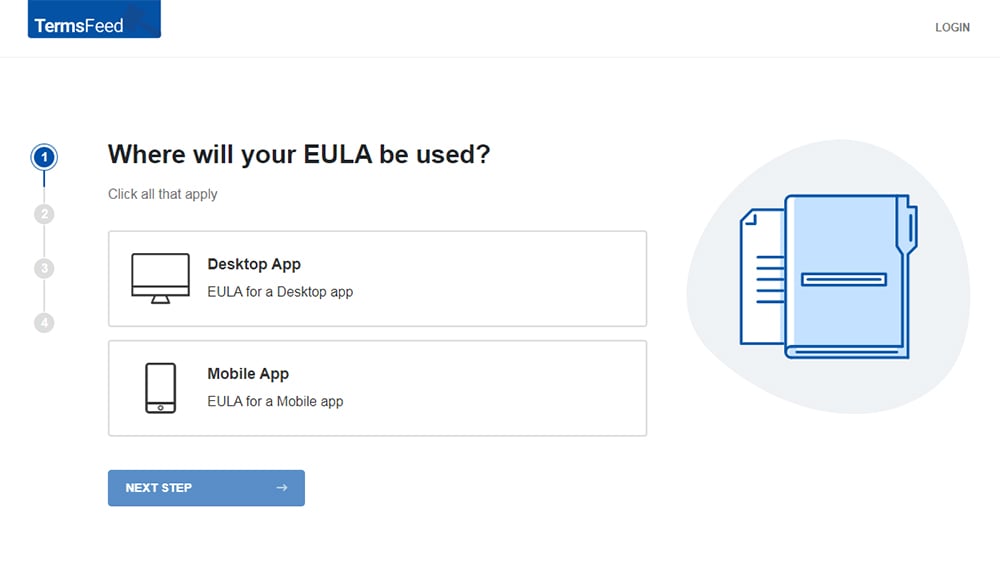
-
Answer some questions about your app.
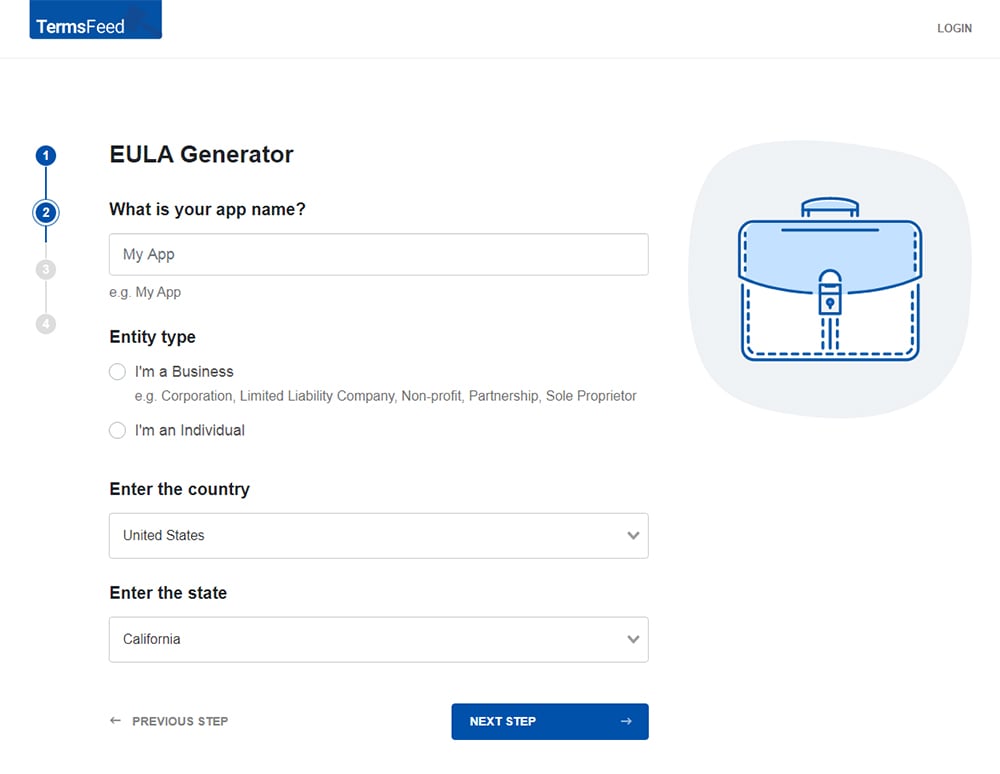
-
Answer some questions about your business.
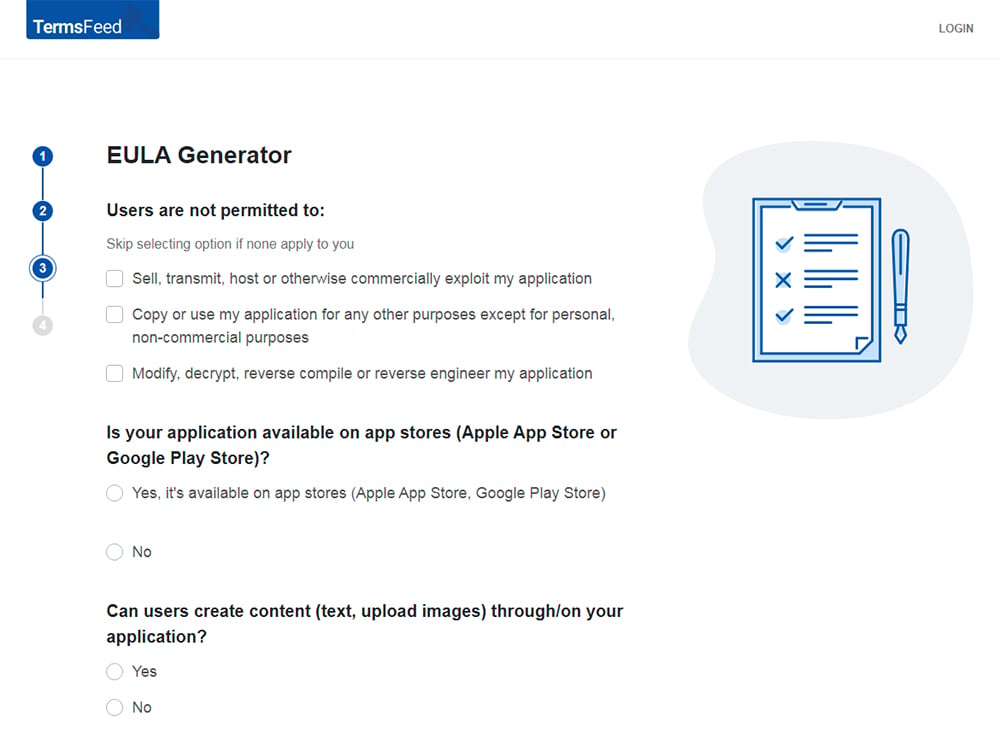
-
Enter the email address where you'd like to receive the EULA document and click "Generate."
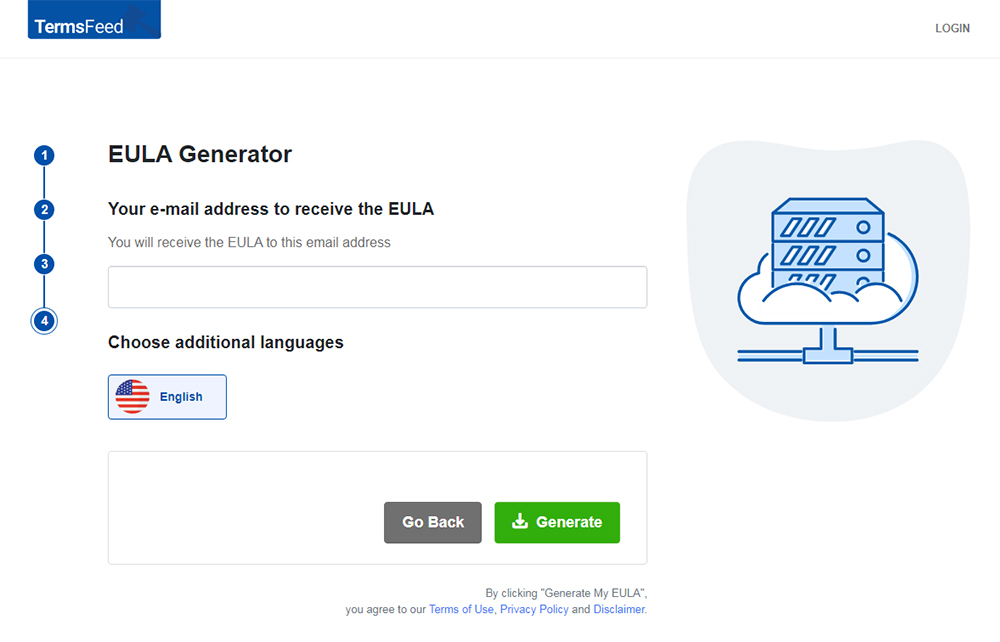
You'll be able to instantly access and download your new EULA.
The EULA is a type of legal agreement that sets out the licensing terms for the buyer of your software.
When someone buys your software and agrees to an EULA, it'll give them the right to use a copy of your software on their own device.
Normally the EULA will also cover payment conditions and terms, time limits on the license, and how they can use the software. A common prohibition is that they cannot make further copies of the software, and cannot try to reverse-engineer your software.
The "IP" (or "Intellectual Property") sections of an EULA are normally tied up with the licensing provisions and can often be quite extensive.
The EULA would normally be used when the user downloads or uses a CD to install an actual copy of the software on their computer or mobile phone.
In contrast, a Terms of Service (ToS) is a legal document that more widely covers expected user behavior and the rules for users when they use your software.
Our Terms and Conditions Generator makes it easy to create a Terms and Conditions agreement for your business. Just follow these steps:
-
At Step 1, select the Website option or the App option or both.
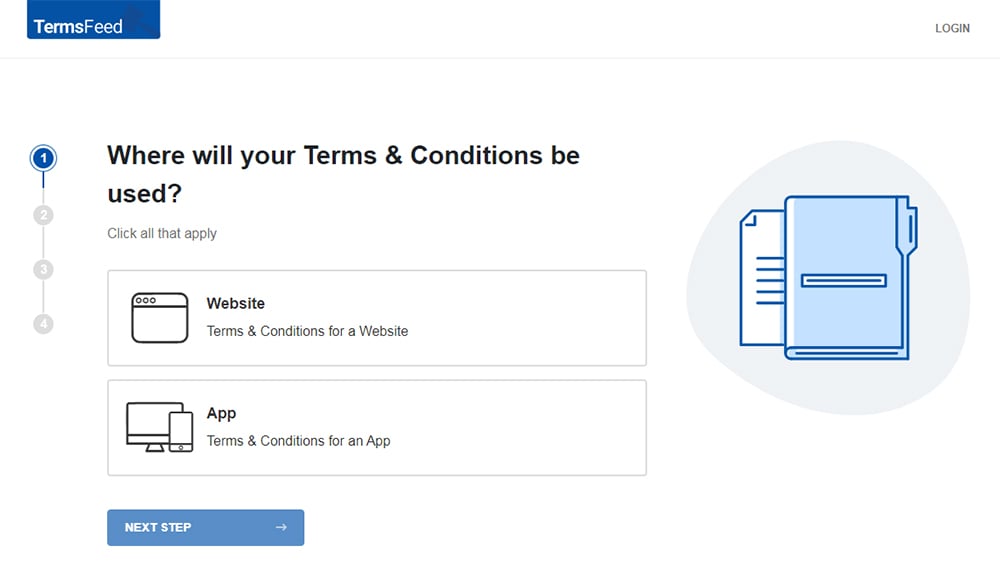
-
Answer some questions about your website or app.
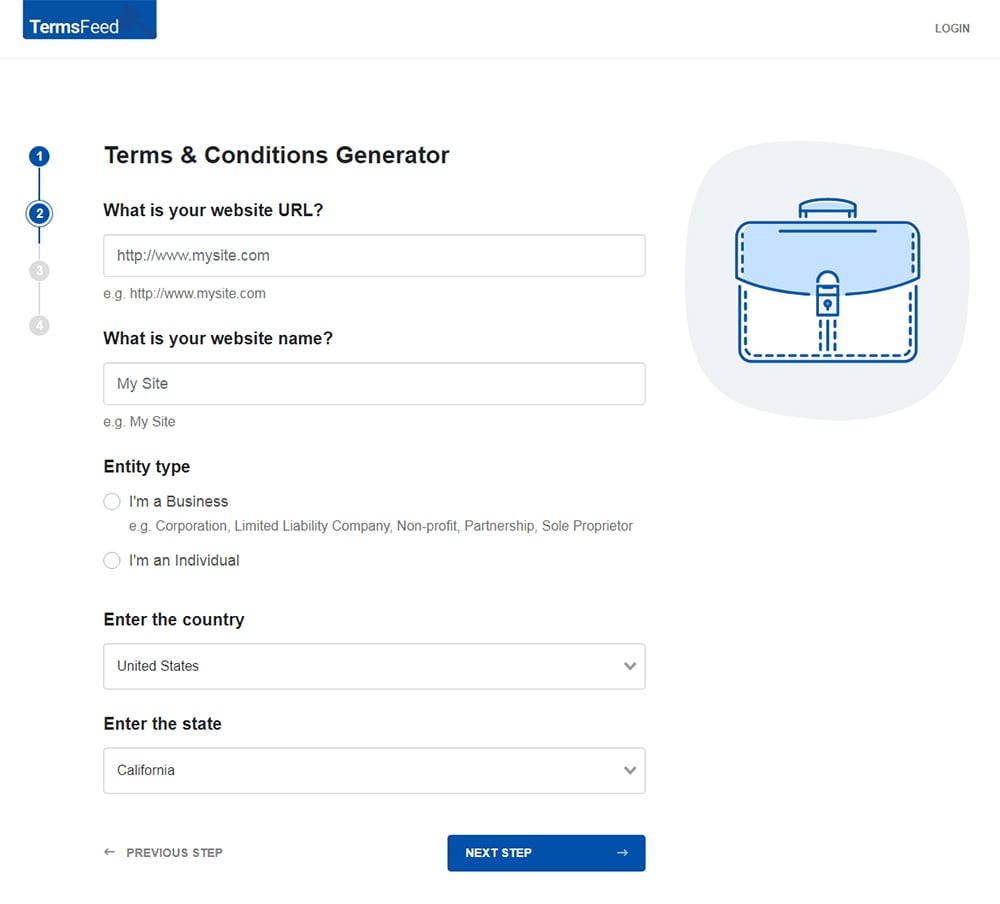
-
Answer some questions about your business.
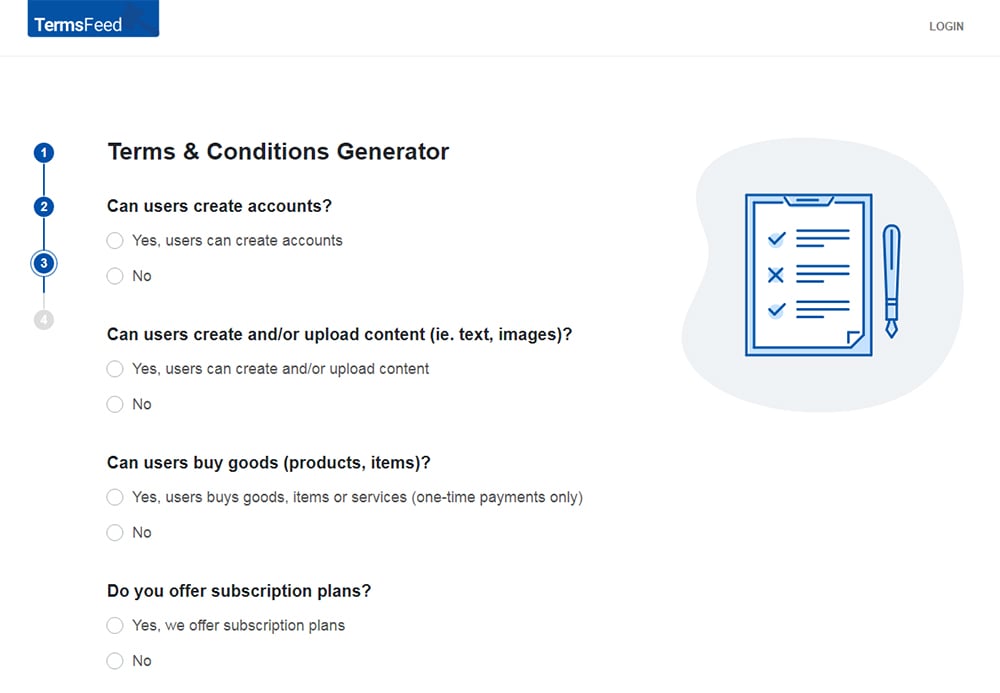
-
Enter the email address where you'd like the T&C delivered and click "Generate."
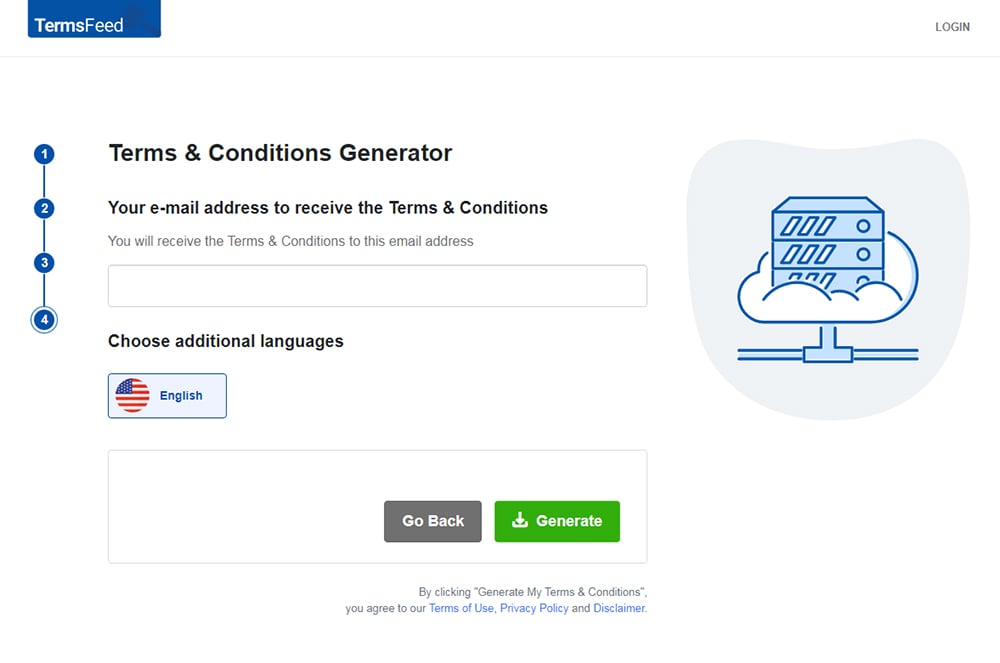
You'll be able to instantly access and download the Terms & Conditions agreement.
The ToS does usually set out a license for your users, but it also covers more broadly how the user is expected to use the service that you have provided them. A ToS is more often used with Software as a Service (SaaS) products and does not generally license the intellectual property in the software in the same way that the EULA would.
A ToS would normally be used if your software is accessed through a web platform, where the user does not download a copy of the software to their computer or phone, such as a SaaS offering.
This kind of agreement may include sections on acceptable use, dispute resolution, and payment details. The "IP" clauses in a Terms of Service agreements are normally shorter and less extensive than what you would expect in an EULA, depending on exactly how the software is provided to the user.
Example of IP (Intellectual Property)
Now let's take a look at some of the differences, and some examples.
EULA license terms are normally more extensive, as the software they are used for is downloaded onto the user's computer or mobile phone. The IP aspects of the agreement are usually covered in more detail, given that the user needs to copy the software to use it.
In the ToS agreement for a SaaS app, the IP clause is usually as one smaller part of a more general agreement, as the user does not download the software, but uses it via a platform. This means that the IP issues that need to be covered are fewer. Let's take a look at a few examples.
The first example we'll look at is a SaaS product, called Trello. Trello's IP clause is quite short and notes primarily trademark issues. It's important for this kind of agreements for SaaS products to cover reverse engineering issues, as even though the user is accessing the software via a platform, it's still possible to reverse engineer in that way.
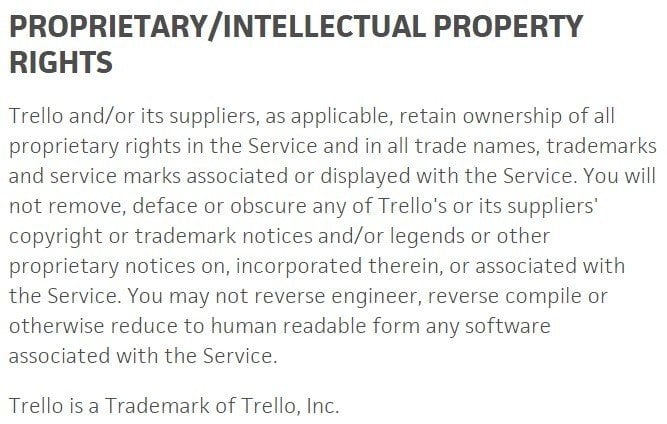
You can see that the primary issues are the use of Trello's "IP" available on the website, such as the trademark and other aspects of the service that contain proprietary notices (such as a trademark registration mark or copyright notice).
Next let's take a look at Xero, a SaaS accounting platform.
Their general IP clause is quite short. The agreement defines "Intellectual Property Rights" as "means any patent, trademark, service mark, copyright, moral right, right in a design, know-how and any other intellectual or industrial property rights, anywhere in the world whether or not registered."

You can see that their clause simply notes that the "IP Rights" remain Xero's property. The later parts of Xero's "IP" clause deal with user data rather than Xero's IP, given that user data in the form of accounting information is input into the Xero platform in order for it to work.
One good example of a SaaS based product from a company that also makes downloadable software offerings is Adobe. For example, this is the IP clause for their SaaS offerings like Creative Cloud:
![]()
The clause is extremely short and relatively clear in what it applies to, though it could be spelled out with more information provided. When compared to the EULA of Adobe's Photoshop CS3, you can see some major differences in how they deal with the IP clause:

In the Photoshop CS3 IP clause, the code is more explicitly stated to be confidential and a trade secret and the clause notes that no IP rights are granted to the user in the software, other than what is permitted under the agreement. The agreement permits particular uses of the software under the license part of their EULA, as follows:

You can see that the user is licensed to copy, download, install, and use the software. These permissions are necessary for the user to actually use the product, given that it is downloadable software to the user's machine, not a SaaS platform offering.
Another example of this type of setup is in the EULA of VMWare. First they set out their license terms:

Then, they cover how IP is dealt with, separately from the license. You can see that it explicitly states that "your rights to use the Software and Documentation shall be limited to those expressly granted in this EULA...".

In contrast, the Terms of Use agreement of Xero frame user permissions in the form of "use" of software, rather than as a license, as follows:

You can see that the ToU limits the use of the Service to access via the website, and does not permit the user to make copies or download the software in any way.
The primary differences between the intellectual property clauses in EULA and Terms of Service agreements are its breadth and extent within the context of the agreement itself.
The EULA intellectual property clause should cover more thoroughly how IP is dealt with in the context of the license granted to the customer, given that the customer is normally downloading and copying the complete product in its entirety.
The Terms of Service agreement, on the other hand, can cover IP at a higher level, and may only need to deal with the aspects of the product that the customer accesses as part of the service - e.g. using, rather than modifying or copying the software.
If you're setting up an IP (Intellectual Property) clause for your software or service, ensure that you've considered exactly what aspects of your IP the customer needs a license to use.

Comprehensive compliance starts with a Privacy Policy.
Comply with the law with our agreements, policies, and consent banners. Everything is included.
